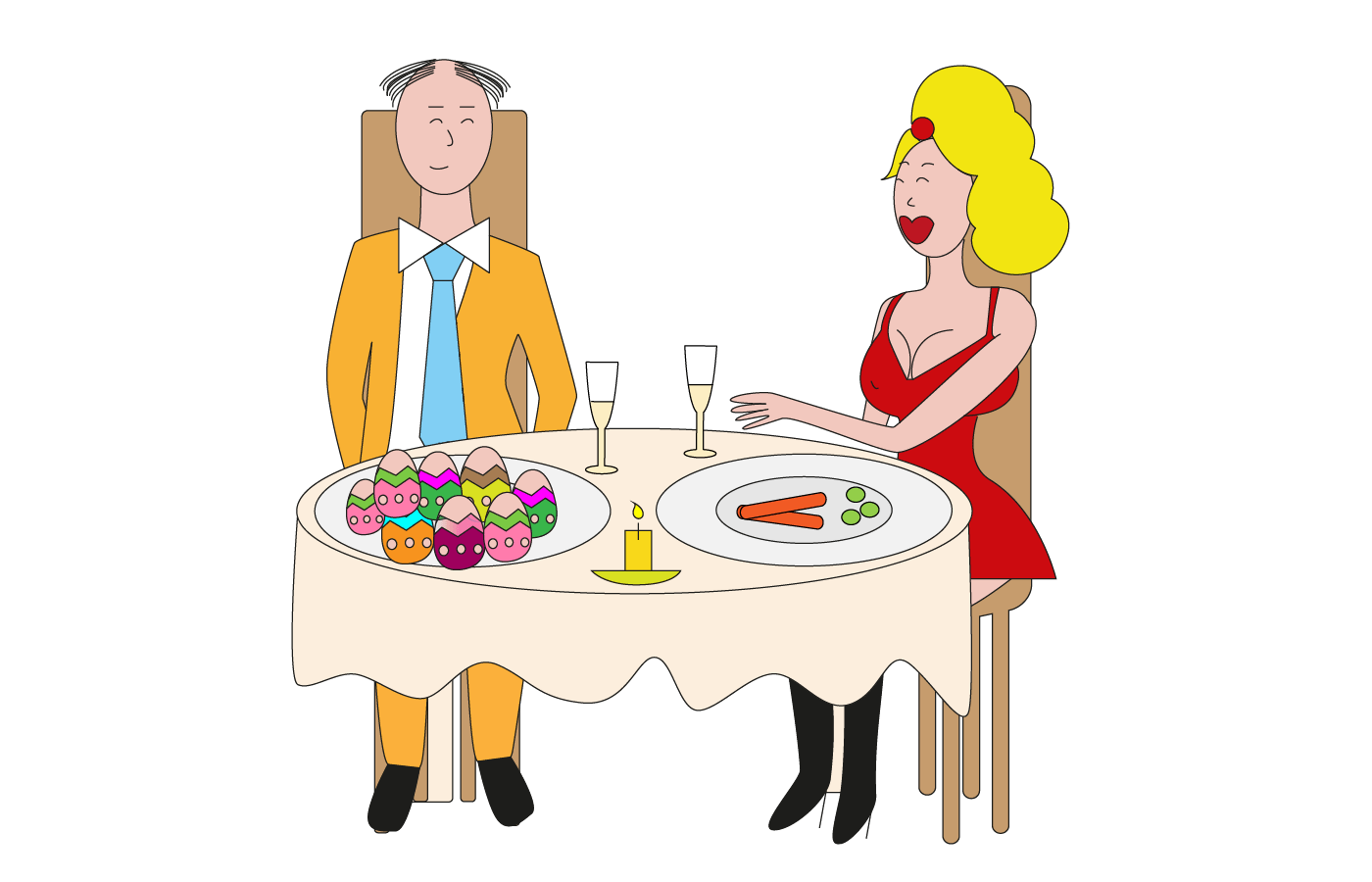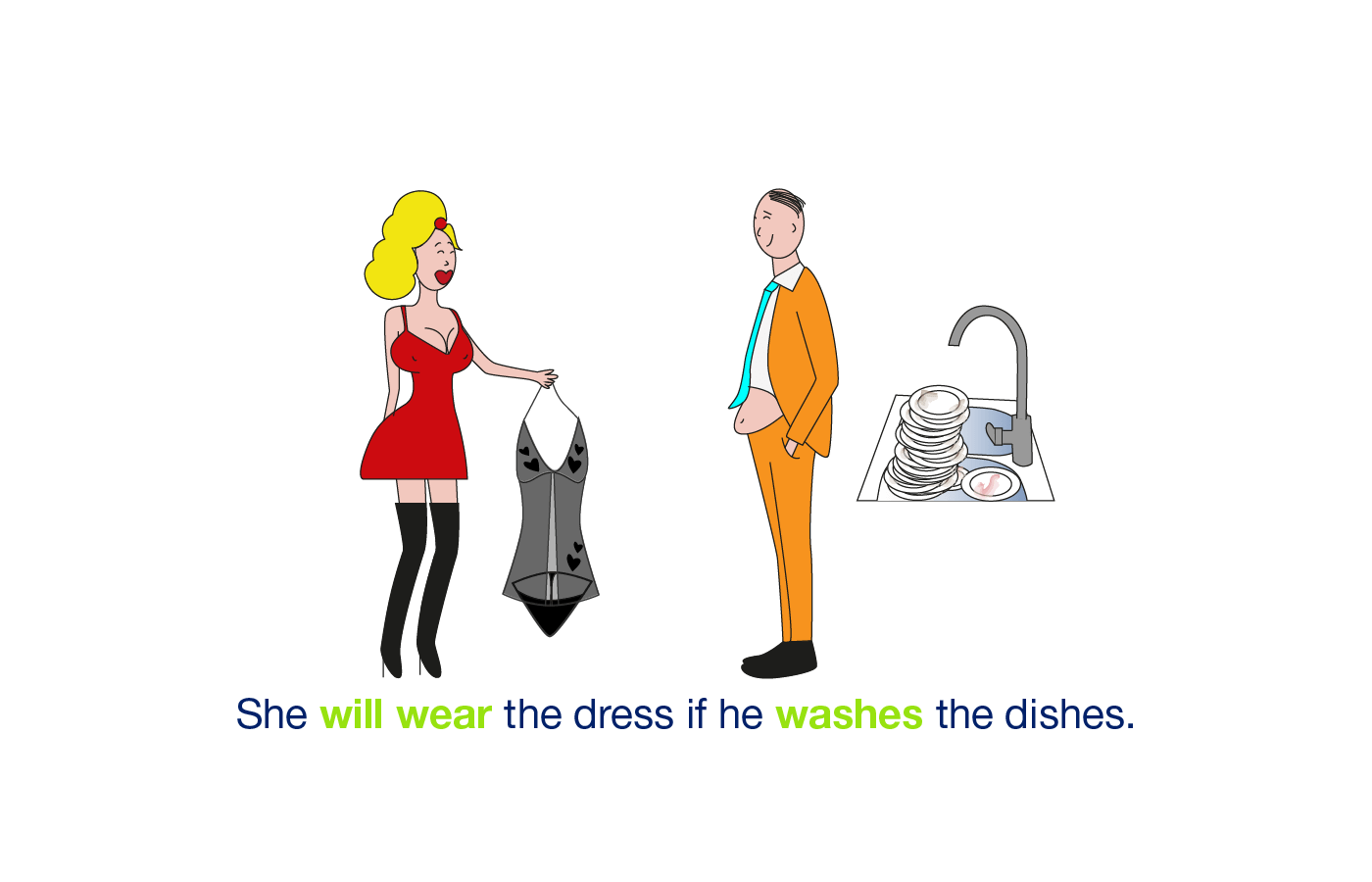When we use First conditional
- First conditional
- We use First conditional for POSSIBLE FUTURE situations. We say what we will do IF SOMETHING HAPPENS IN THE FUTURE.
An example of first conditional use in context.

If he eats too much, he will feel sick.
How we form first conditional
If + present simple, future (will + verb).
Other examples of first conditional use in a sentence
- If it rains, I will take an umbrella.
- If she says she loves me, I’ll ask her to marry me.
- I’ll be happy if we win.
First conditional is used not only with the word “If”. It can also be used with other words:
- When
- Before
- After
- Unless (if not)
- As soon as
- As long as
Example sentences with first conditional used with words other than “if”
- When I finish work, I’ll call you.
- Before she comes, I’ll have to clean the house.
- I’ll call you after she leaves.
- I’ll go to the beach unless it rains.
- We’ll go to the cinema as soon as I finish.
- As long as you love me, I’ll be happy.
First conditional used with modal verbs like can, must, should, might, may
When there’s a modal verb in a first conditional sentence, we use present simple instead of will (they still describe a possible future event).
If + present simple, modal verb in present simple.
Example sentences with first conditional used with modal verbs like can, must, should, might, may
- If I finish work, I can come.
- You should leave immediately if the fire alarm rings.
- When she calms down, she might call you.
- You must tell me if the baby starts crying.
First conditional used with imperative
We don’t use “will” when the first conditional sentence uses the imperative form (they still describe a possible future event).
Example sentences with first conditional used with imperative
- Tell me if she calls you.
- Call me when you finish.
- If they come, tell them to leave.
- Give me the document as soon as you get it.
